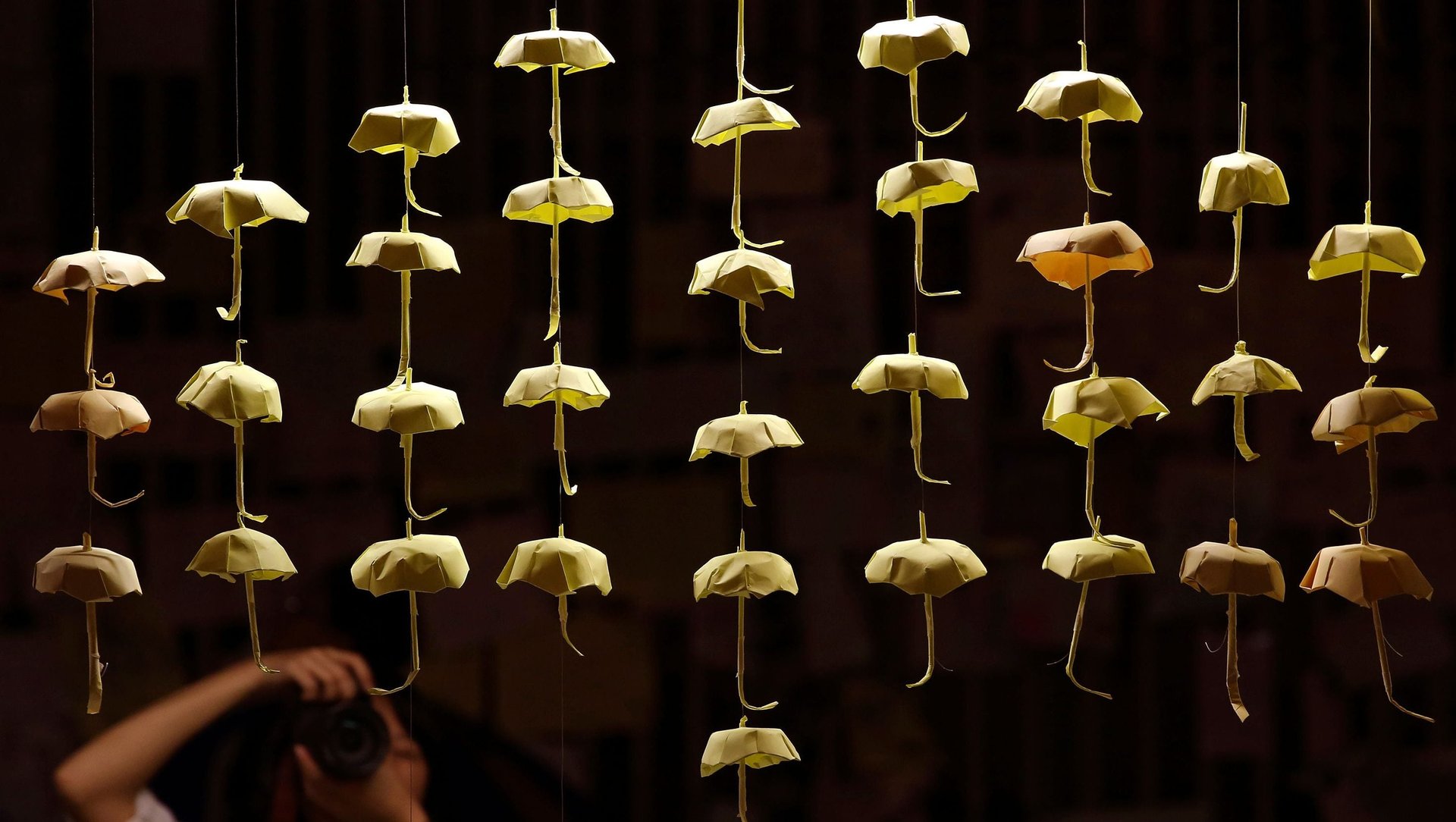Hong Kong awaits the verdict on the Umbrella Movement
Hong Kong is awaiting one of its most important verdicts ever.


Hong Kong is awaiting one of its most important verdicts ever.
Tomorrow (April 9), a court will announcement its judgment of the so-called “Umbrella 9,” a group of academics, former student leaders, politicians, and lawmakers involved in the 2014 pro-democracy Umbrella Movement protests, which called for greater democratic rights in Hong Kong.
The demonstrations, also called the Occupy movement, lasted for 79 days, during which central areas of the city were occupied by protesters who demanded the right for the city’s population to choose its own leader, rather than have Beijing present a short list of candidates for the post. The protests are perhaps best remembered for the use of pepper spray and tear gas by police against the demonstrators, giving rise to the name Umbrella Movement for the umbrellas that people used to protect themselves. The protests ended peacefully, but Beijing did not budge on its decision.
The political suppression that resulted from those protests has lasted until today. For example, political parties which emerged from the demonstrations have either been declared illegal, or banned from running for elections, both at the district and legislative level. Many of the movement’s leaders, as well as lesser known participants, have also been sentenced to various prison and community-service terms. Joshua Wong, the former student leader who was only 17 at the time of the protests, served six months in prison.
The trial of the Umbrella 9, however, is particularly noteworthy because of the profile of those involved. They include the “Occupy Trio”—two academics and a reverend who laid the foundation for the 2014 protests with their call for mass civil disobedience. Two former student leaders, two pro-democracy lawmakers, and two former politicians are also part of the group. The nine faced counts of conspiracy to commit public nuisance, incitement to commit public nuisance, and incitement to incite public nuisance, three colonial-era criminal provisions that carry a maximum sentence of six years in prison each. All of them pleaded not guilty.
That their trial happened at all has been seen as a sign of just how much more repressive Hong Kong has become since the demonstrations nearly five years ago. The defendants are now steeling themselves against the possibility they will serve time.
“I guess I have read a lot of letters and books written in prisons even when I was a young man, so it seems that I’ve been preparing for this for quite a while,” said Chan Kin-man, the 60-year-old sociology professor of the Occupy Trio, said in an interview with the Little Red Podcast. “I guess it is almost like a must for society to go through this when fighting for democracy. Some people have to show their commitment to the community that democracy is so important they will be willing to go to jail.”